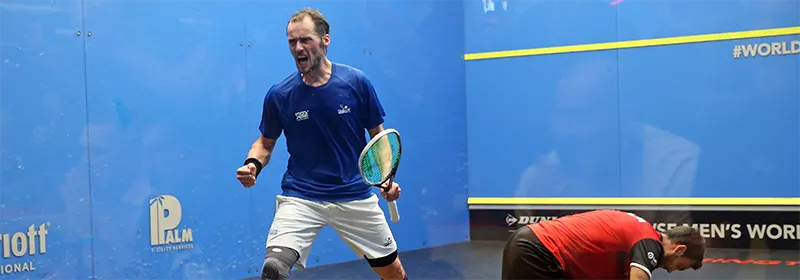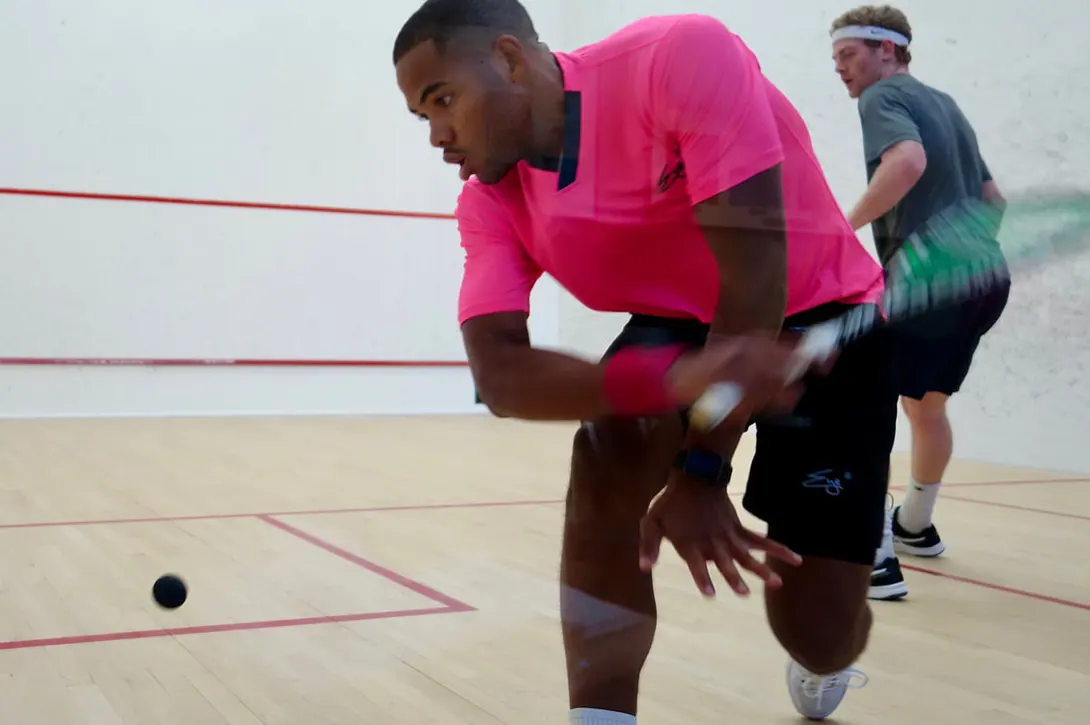15 June 2022 / 3-Min Read / Translate
We all want to be challenged, stretched, made to work hard, and playing against better players does that. We come off court feeling as though we have trained hard. Perhaps we got close in one or two games and perhaps we didn’t, but either way, we are getting better, right? Yeah, probably, but are you maximising your training time?

AAAAHHH! I won.
The difference between you and the better play is important, if it is too big then they win too easily, if it is just a little bit, then that’s better. The problem is that squash, and most other sports, doesn’t have a linear scale of “better”. The world rankings would suggest otherwise, but that’s because humans like lists. The reality is that play A beats player B, and player B beats player C, and sometimes player C beats player A! So who is the best player? It’s not a list any more, it’s a circle.
Clearly, I am not suggesting that you i play better players, that would be stupid. What I want you to do is play different players. Each player represents a different puzzle. A puzzle that must be solved. The skill and fitness level of a player is very important, but it’s more interesting than that. if you have played enough team squash, you have probably encountered players that are really hard for you to beat. At first glance, there is nothing special about their game, nothing that makes them look unbeatable. You see them playing somebody else and think "I can beat them".

Playing against different players forces you top adapt
But then when you are on court, it’s a different story. Your best shots are easily reached, you can’t seem to find their weaknesses, nothing you try works. BAM! You lose. All you practice with the better players doesn’t matter any more because you didn’t solve the puzzle. This is why playing in leagues, ladders, inter-club team matches, tournaments and club night is so good for your game. It allows you to develop strategies and tactics, that can used used against lots of other players.
Imagine you hire a pro to play with you twice a week for 3 months. No coaching, just playing. The pro plays to beat you, giving you no more than 2 or 3 points per game. The first week, you feel like a zombie. The second, a slightly less dead zombie and so on until the end of the 3 months. 12 times you played the pro and you definitely got better. Any points you get now, you have earned. They try to beat you to love, but you still get 1 or 2 points. You feel satisfied. You are definitely fitter, you definitely hit the ball cleaner, your footwork is smoother. All round, you have improved.
Now imagine that you played a different person twice a week for 3 months. The standard of the person is more or less the same as you: sometimes better, sometimes worse, sometimes the same. Some matches you win and some you lose. Each new player is a new puzzle. Will you get fitter from playing these players? Maybe. Will you get better at hitting the ball? Maybe. Will you get faster? Maybe. But what you will get is SMARTER. If you pay attention to the games and try to learn something from each one, I guarantee you will be a better squash player at the end of the three months.
If you pay attention to the games and try to learn something from each one, I guarantee you will be a better squash player at the end of the three months. Better than the person who played the pro? I don’t know. What I do know is that “different” is better than “better”.